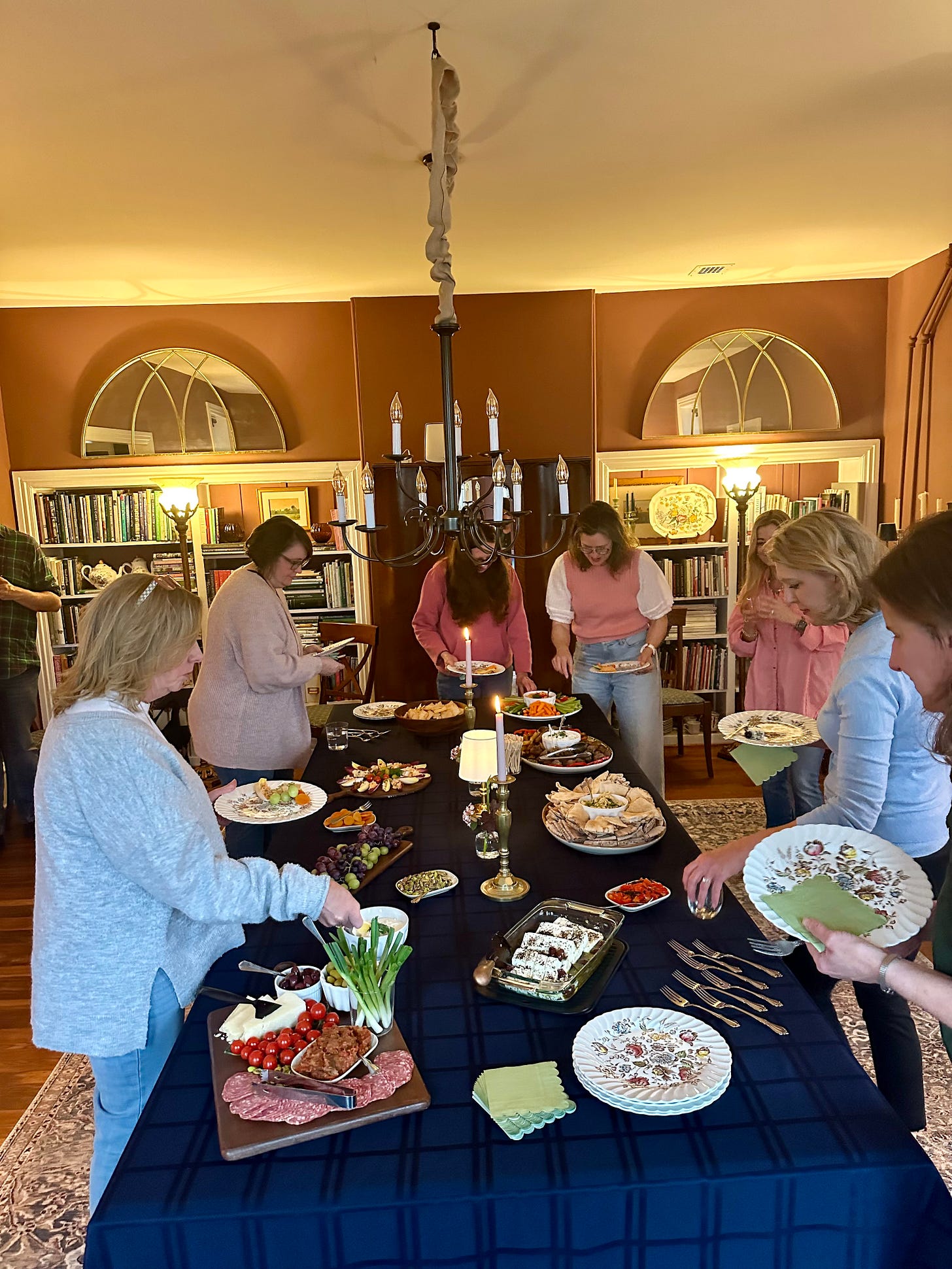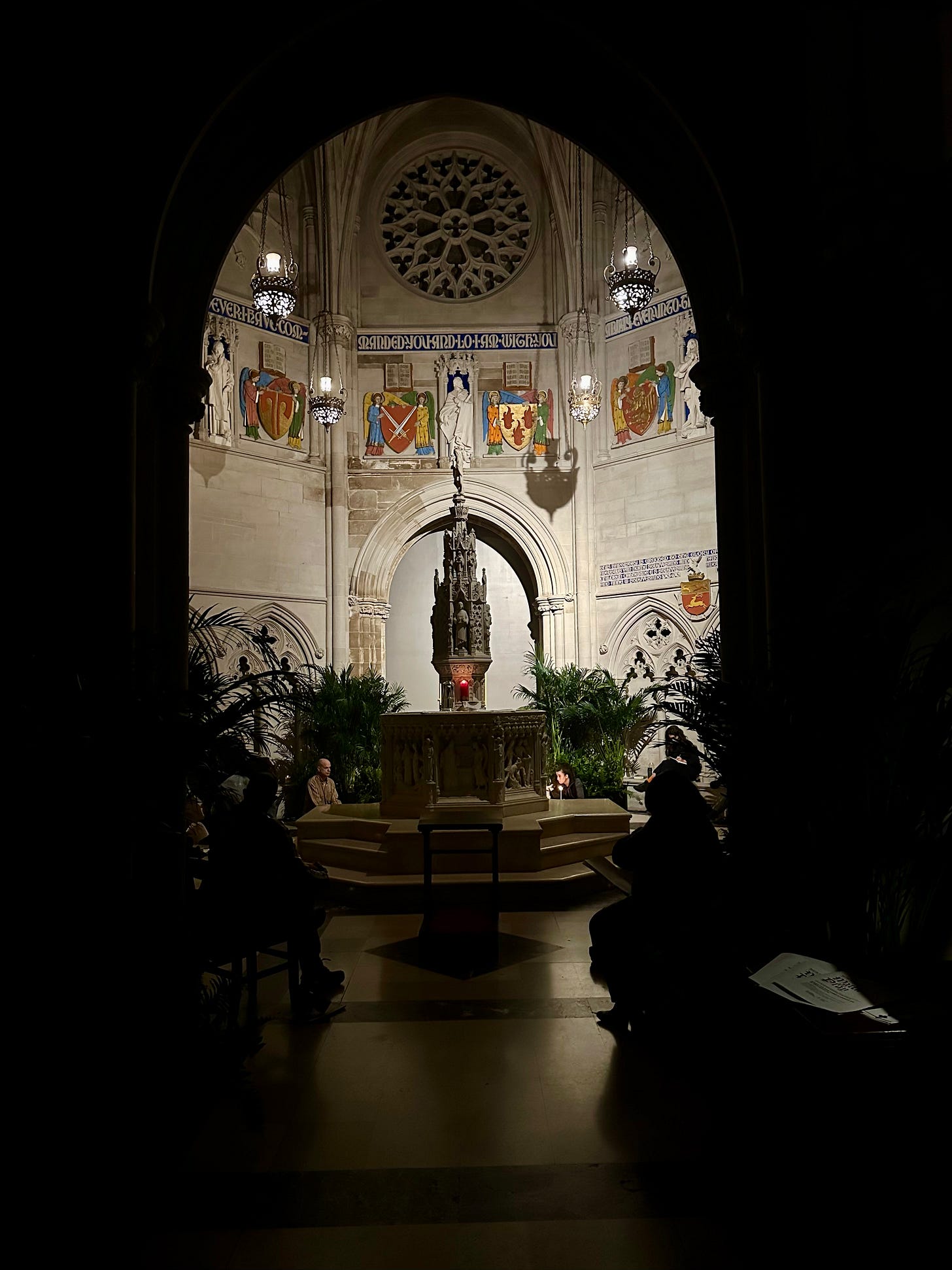Nine years ago, my mom put a well-worn paperback into my hands, her annotations marking nearly every page. The cover centered a Victorian farmhouse, a triumphant blue sky, and a tree-lined driveway leading to the front porch of the author’s home, Maplehurst.
Roots and Sky by Christie Purifoy came to me in a year of unraveling, when I had lost what felt like everything. Chapter by lovely chapter, I devoured every word about gardening and placemaking and change. I didn’t know Christie personally, but I sensed through the page that she was a kindred spirit in search of goodness in the wild—grounded in the messy roots of reality while fixing her gaze on the hope of the sky.
Time passed, as it does. Life bloomed in unexpected places. Six years later, I met Christie at a conference in Lancaster, PA, and a few months later, she graciously endorsed our book. Since then, we’ve exchanged emails and Instagram DMs, and I’ve continued to read every book she’s ever written.
Last week, I visited the same farmhouse that graced the cover of that shining book. Christie had invited a small group of writers to spend the weekend at Maplehurst for a guided prayer and spiritual direction retreat, focusing on how to become writers of wisdom. The weekend came at the perfect time for me—when life seemed to be all questions and no answers, when it seemed only silence could do the work that needed to be done.
Christie picked me up from the train station in Wilmington Delaware on Thursday afternoon, tossing my suitcase into the trunk of her gray minivan. Her smile was bright and easy, greeting me as though we’d known each other for years. We chatted on the thirty-minute drive to Maplehurst as she pointed out the farmland and vineyards and mushroom houses of southeastern Pennsylvania.
That evening, thirteen people from all over the country gathered in the Maplehurst dining room for dinner and introductions. We oohed and ahhed over the treasure trove that was Christie’s home—the wealth of books, the assortment of dishes, the brass candlesticks, the porcelain vases filled with flowers.
The next day, it rained without stopping. We gathered in the barn, just a few steps away from Maplehurst’s kitchen door, where the wood-burning stove crackled and heated the damp, chilly air. We arranged ourselves into a circle of chairs and blankets, and a reverent hush fell over us. Thus, our two and a half days of spiritual retreat began.
Jamin, a pastor and theologian from San Diego, and our spiritual director for the weekend, welcomed us with an invitation to be on retreat.
The offer was simple—to pause and be still, to allow even our troublesome thoughts to surface, to not be afraid. He reminded us that on retreat, we need not force anything to happen. Revelations and awakenings may come, or they may not. To retreat is to rest, to set our expectations on presence rather than on returning home with answers.
We all came with needs to be met, and held each other in the spaces we found ourselves, nurtured by the teachings of Scripture and poetry. We meditated and asked for help. We listened for God’s voice and accepted his silences. We shared what arose in our individual times of solitude, and asked questions to help guide one another, sharing words of encouragement when we had them and tears when we didn’t. We offered each other the slivers of our lives, narrow and time-bound, that cut to the depths.
We were the ones, the friends, meant to hold each other for those two and a half days. For retreat friends do hold each other, albeit for a brief time, with invigorated strength, allowing new voices and fresh love to shoulder the burdens.
As Christie drove me back to the train station on Palm Sunday, we reflected that though the weekend was full of new people and conversations, we weren’t drained. Instead, we were entering Holy Week filled and nourished, supported and upheld, even as we upheld one another.
That afternoon, I returned to the chaos of Penn Station, the sirens of Harlem, and the confusion of my own life. Though I was home from retreat, I wanted to stay in that space of quiet, of solitude, of unforced being.
A few days later, I attended a Maundy Thursday service at the Cathedral of St. John the Divine where each year, congregants are invited to wash one another’s feet. The clergy goes first, removing their vestments, their shoes, their socks. They lower themselves to their knees and model the ritual of rinsing, of cleansing, the gentle act of drying. Choral music fills the magnificent, vaulted space, and we follow in this humbling, human way.
At the end of the service, we process around the cathedral to the baptistery for an all-night vigil, to watch and pray with Christ. For hours, we sit or kneel or lay on the tile floor by candlelight. Incense filling the room with its faint, sweet scent. I tell myself I should leave and go to bed, but the silence hangs thick and heavy and comforting.
Stay with me. Remain here with me. Watch and pray.
This silence was kept for hours as we remembered Christ’s anguished prayers in the garden, his plea to let the cup pass, his request that his friends watch and wait with him.
Easter Sunday has come and gone, and I keep finding myself drawn to these long stretches of silences. Yet with reluctance, I let my friends into even this. I fight the urge to give them a resolution, to declare a breakthrough, to announce what “God is doing,” because I don’t know. For now, I am retreating to gardens and park benches and farmhouses in Pennsylvania to ask for help while the way is dark. For now, I am asking my friends to watch and wait with me.
And while we wait, we read side by side, our cups of tea cooling on the table. We cook soup with plenty of lentils. We drink Juneshine on the stoop and behold the tulips at peak bloom. We do less explaining and more listening. We laugh, at times through tears. We settle into the anguish of asking, of longing, of not knowing together.









